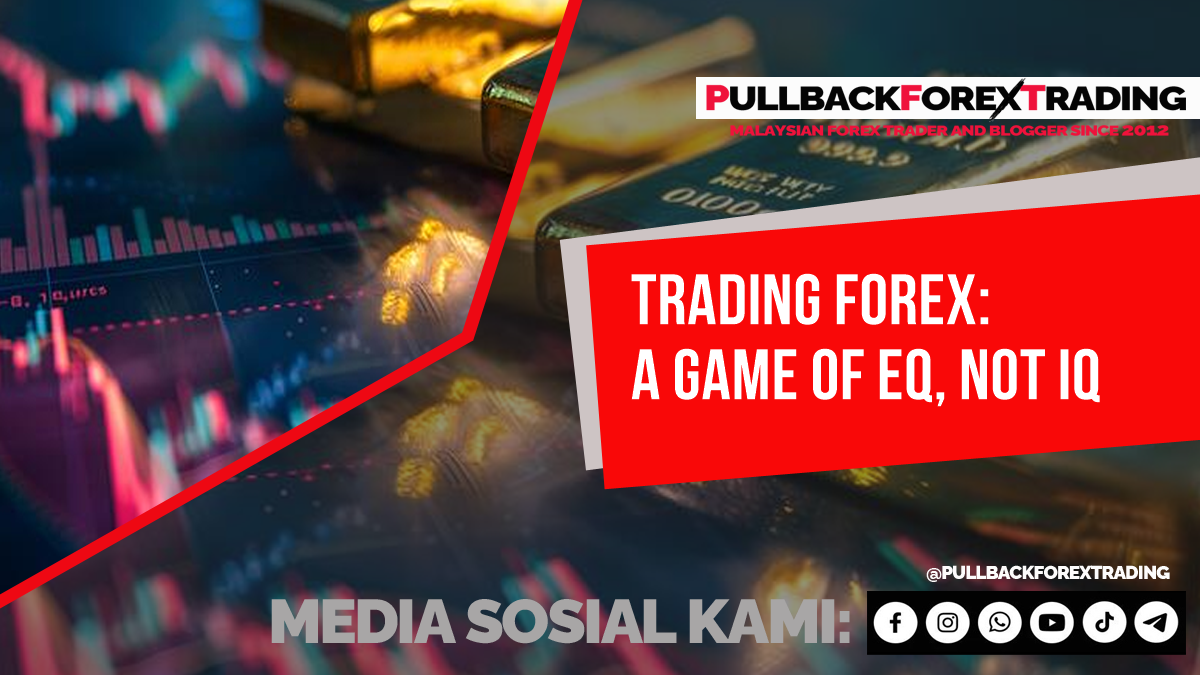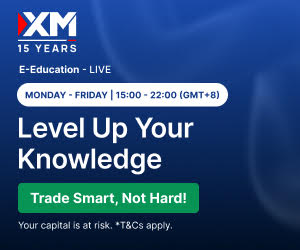
Trading Forex: A Game of EQ, Not IQ
In the fast-paced and volatile world of Forex trading, success is less about how much you know and more about how well you manage yourself. Emotional intelligence (EQ) plays a pivotal role in making sound decisions, as it governs how traders handle stress, uncertainty, and the constant temptation to act impulsively. Understanding and managing emotions like fear, greed, revenge, and the fear of missing out (FOMO) can be the difference between consistent profitability and recurring losses.
Why EQ is Crucial in Forex Trading
1. Decision-Making Under Pressure
Forex markets operate 24/5, with rapid price movements driven by global events, news releases, and market sentiment. In such an environment, traders face immense pressure to make decisions quickly. EQ helps ensure these decisions are based on logic and strategy rather than emotion.
- Poor Decision Example: Acting on FOMO by entering a trade late, only to see the market reverse.
- High-EQ Response: Sticking to a predefined plan and waiting for a high-probability setup.
2. Avoiding Emotional Triggers
Emotional trading often stems from common triggers:
- Revenge Trading: After a loss, a trader might feel compelled to “win back” their money by taking impulsive trades.
- FOMO: Seeing a strong market trend and jumping in without proper analysis, fearing the opportunity will be missed.
- Greed: Holding onto a trade too long, hoping for even greater profits, often resulting in giving back gains.
Traders with high EQ recognize these emotions and pause before reacting, ensuring decisions align with their overall strategy.
3. Managing Losses
Losses are inevitable in Forex trading, but how a trader responds to them is critical. EQ allows traders to view losses objectively, learning from mistakes rather than letting emotions dictate their next move.
- Key Skill: Separate yourself from the outcome of individual trades and focus on long-term profitability.
4. Risk and Reward Balance
Forex trading offers leverage that magnifies both profits and losses. EQ helps traders maintain discipline by adhering to risk management rules, such as setting stop-losses and taking profits at predefined levels.
- Best Practice: Avoid increasing position sizes impulsively after a win or loss.
5. Maintaining Patience
Patience is one of the most undervalued traits in Forex trading. High-EQ traders understand the importance of waiting for the right setups rather than forcing trades out of boredom or frustration.
Building Emotional Intelligence in Forex Trading
1. Understand Your Emotional Triggers
Self-awareness is the foundation of EQ. Identify what emotions arise during trading—whether it’s fear during volatile markets, greed after a winning streak, or frustration after a loss.
- Actionable Tip: Keep a trading journal to record not only your trades but also your emotions before, during, and after each trade. Over time, patterns will emerge.
2. Create and Follow a Trading Plan
A solid trading plan outlines your entry, exit, and risk management rules. Following this plan reduces the likelihood of emotional decision-making.Why EQ is Crucial in Forex Trading
1. Decision-Making Under Pressure
Forex markets operate 24/5, with rapid price movements driven by global events, news releases, and market sentiment. In such an environment, traders face immense pressure to make decisions quickly. EQ helps ensure these decisions are based on logic and strategy rather than emotion.
- Poor Decision Example: Acting on FOMO by entering a trade late, only to see the market reverse.
- High-EQ Response: Sticking to a predefined plan and waiting for a high-probability setup.
2. Avoiding Emotional Triggers
Emotional trading often stems from common triggers:
- Revenge Trading: After a loss, a trader might feel compelled to “win back” their money by taking impulsive trades.
- FOMO: Seeing a strong market trend and jumping in without proper analysis, fearing the opportunity will be missed.
- Greed: Holding onto a trade too long, hoping for even greater profits, often resulting in giving back gains.
Traders with high EQ recognize these emotions and pause before reacting, ensuring decisions align with their overall strategy.
3. Managing Losses
Losses are inevitable in Forex trading, but how a trader responds to them is critical. EQ allows traders to view losses objectively, learning from mistakes rather than letting emotions dictate their next move.
- Key Skill: Separate yourself from the outcome of individual trades and focus on long-term profitability.
4. Risk and Reward Balance
Forex trading offers leverage that magnifies both profits and losses. EQ helps traders maintain discipline by adhering to risk management rules, such as setting stop-losses and taking profits at predefined levels.
- Best Practice: Avoid increasing position sizes impulsively after a win or loss.
5. Maintaining Patience
Patience is one of the most undervalued traits in Forex trading. High-EQ traders understand the importance of waiting for the right setups rather than forcing trades out of boredom or frustration.
- Example Plan:
- Risk only 1% of your capital per trade.
- Use a risk-to-reward ratio of at least 1:2.
- Trade only during specific market conditions or sessions.
3. Pause Before Reacting
High-EQ traders take a moment to assess their emotions before making decisions. This simple pause can prevent impulsive actions driven by revenge, greed, or FOMO.
- Technique: If you feel overwhelmed, step away from your trading platform and take deep breaths or a short walk.
4. Practice Mindfulness
Mindfulness techniques, such as meditation or focused breathing, can help you stay calm and centered during high-stress situations.
- Benefit: Reduces anxiety and improves focus, leading to more rational decision-making.
5. Simulate Scenarios
Use demo accounts or backtesting tools to prepare for various market conditions. Familiarity with different scenarios reduces emotional responses when they occur in live trading.
6. Set Realistic Goals
Unrealistic expectations, like aiming to double your account in a month, can lead to frustration and reckless trading. Instead, focus on steady, consistent growth.
- Example: Aim for a 5-10% monthly return, depending on your strategy and risk appetite.
EQ in Action: A Practical Example
Imagine you’re trading during a major news event, and the market moves sharply against your position. The emotional trader might panic, close the trade prematurely, or even double down out of frustration (revenge trading). In contrast, a high-EQ trader:
- Acknowledges the emotional reaction but doesn’t act on it immediately.
- Reviews their trading plan and confirms whether the trade still aligns with their analysis.
- Accepts the loss if the stop-loss is hit, knowing it’s part of the process.
By responding calmly and rationally, the high-EQ trader avoids compounding the loss and maintains focus on long-term success.
Final Thoughts
In Forex trading, knowledge and strategy are important, but they’re not enough on their own. Emotional intelligence is what bridges the gap between theory and execution. By understanding and managing your emotions, you can make decisions based on logic and strategy, rather than impulsive reactions. Mastering EQ won’t just improve your trading—it will enhance your resilience, patience, and overall approach to challenges in life.



